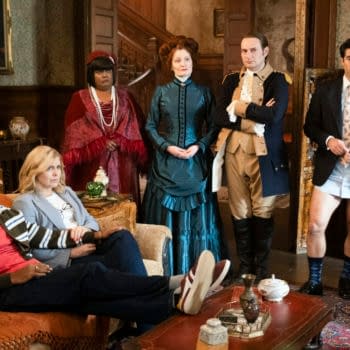Posted in: Paramount+, Star Trek, streaming, TV | Tagged: Mike McMahan, paramount, star trek, star trek: Lower Decks, Tawny Newsome
Star Trek: Lower Decks "Still Feels Like a Miracle" to Mike McMahan
Star Trek: Lower Decks' Mike McMahan discusses pitching the animated comedy to Paramount+, Tawny Newsome, the final season, and more.
Before Mike McMahan's animated series Star Trek: Lower Decks, the franchise embraced comedy and honored its past in subtle ways through its various live-action series. With over 55 years to draw from, Lower Decks has accomplished so much in its 40 episodes and four seasons, with a fifth and final on its way. If it were a syndicated series, it could have ended with over 100 episodes, but the streaming era cuts the average number of episodes in half with 10 a season. After Picard ended in 2023 and Discovery wrapped in May, Lower Decks will be flying off into the sunset in late 2024 on Paramount+. Lower Decks leans far more on the comedy as a self-aware ode to the franchise while still maintaining season-long narratives. McMahan spoke to Deadline Hollywood about its origins, the lower deckers keeping their promotions to lieutenant into the final season.
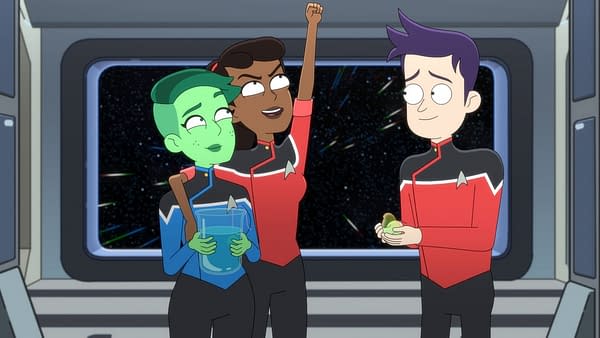
Mike McMahan on Revisiting Origins of 'Star Trek: Lower Decks'
When it came to pitching an animated Star Trek comedy, McMahan shared how the process went. "I knew some folks over at Secret Hideout and they had talked to me before about maybe coming in to be a lower-level writer on 'Star Trek Discovery' when they were starting that. And then I was working on 'Rick and Morty' when that took off at the same time, and Alex Kurtzman and everybody over there was a big fan of it," he shared.
McMahan continued, "So, since we'd already known each other and they knew I was a Star Trek guy, they asked me to come in and talk to them about what my dream animated Star Trek show would be, and I kind of went in being like, 'Look, you're not going to like it. It's not about the important stuff. My favorite thing in Star Trek is the B stories, the little behind-the-scenes things, and the little slice-of-life stuff they start episodes with, so if I could do a show, it would all be about lower-level officers with sort of comedic stories.' And they a hundred percent responded to it."
"It wasn't this crafted thing; it really came out of a conversation with Alex about what I like about Star Trek, what gets me excited about it, and how would I interpret the franchise through a writing lens that I'm comfortable with. I remember calling my wife afterward and saying, 'Okay, this can't be right, but I think I just sold a Star Trek show.' Five years later, it still feels like a miracle."
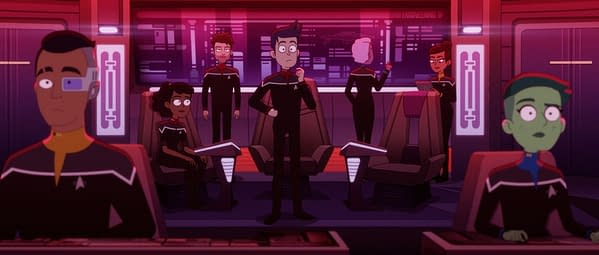
As much as Lower Decks follows the familiar formula of ensemble casts, the series is still led by its charismatic lead, Tawny Newsome, as anti-authority overachiever Lt. Beckett Mariner. "When we're planning this stuff out for character arcs, you don't want the comedy to be affected. You don't want the show to be affected. You don't want it to feel like it isn't the show, right? There's a reason why 'The Simpsons' stay the same age because you've got a great format with the show that you want to still be telling jokes and stories in," McMahan said. "Being able to do character arcs, seeing people grow and change season to season was something that was available to me that I really didn't have access to before. If we were going to do serialized stuff before, it had to be very lightly serialized previously and not rely on you having seen everything."
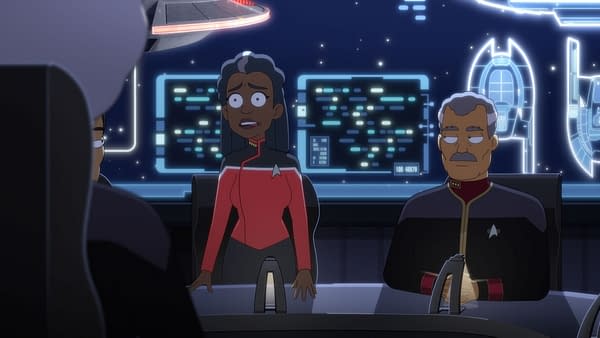
McMahan elaborates that as accomplished as Mariner is, she still gets in her own way. "But in this, there is the fun of getting to arc people out. In writing the character of Mariner and in seeing Tawny interpret her, there was a cool thing to get to do because the theme of the show is all about finding yourself in your 20s and the funny stuff that's happening around then while you're still figuring stuff out. Mariner was a star fleet officer who was great at her job but was still dealing with stuff and figuring stuff out. And then we were finding a lower deck story to tell with her where she loved to rage against the machine, but slowly there was less and less of a machine to rage against. So, once you're promoted and people aren't feeding into your chaotic persona, if there's nobody else to fight, you have to address the stuff that may have been motivating you to fight the whole time."
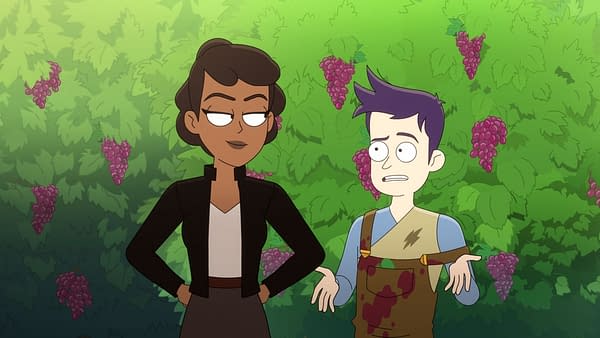
Mariner will eventually evolve. "Trying to do that in a way that felt honest, felt like Star Trek, and was still fun and funny was the best kind of problem to have as a writer. That was something that was really exciting to me. And then, leading into season five, you'll see that Mariner's come out the other side of a pretty heavy emotional arc for her in season four, but she's still funny, and she's still herself," McMahan said. "I think it really speaks a lot to how Star Trek can let characters do that and then it doesn't make them less likable or less interesting, but actually enhances them moving forward." For more on how much the voice actors improvise, you can check out the full interview here.














